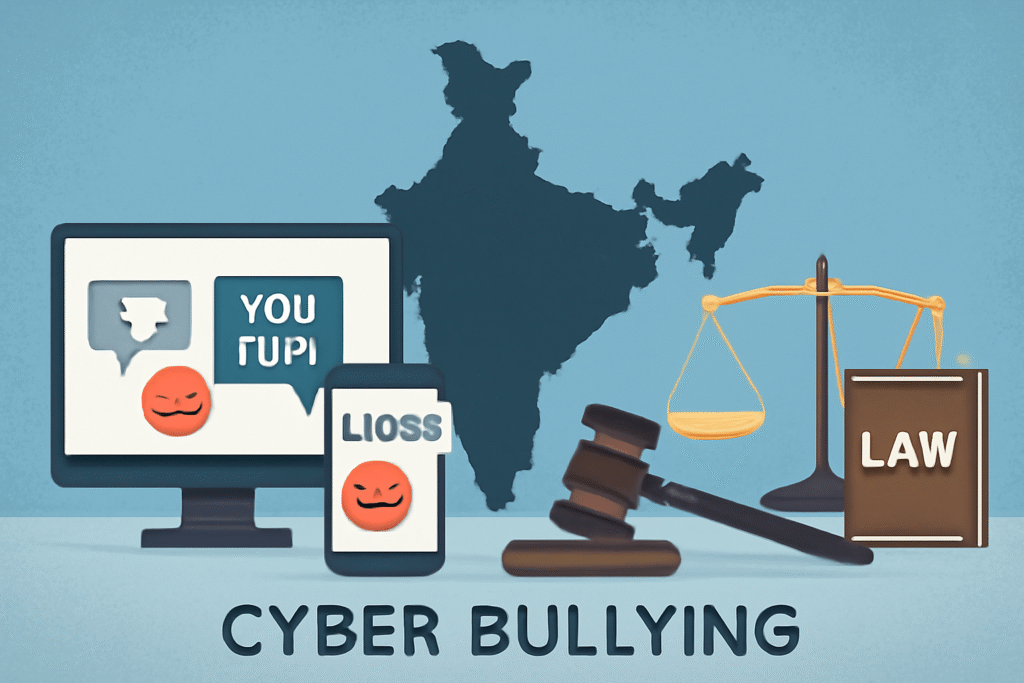Published On: November 2nd 2025
Authored By: Yashika Tiwari
Chandigarh University
Introduction: From Cold War Resources to Commercial Boom
For fifty years, outer space was solely the territory of superpowers, a vast stage for geopolitical rivalry and scientific exploration governed by a straightforward, elegant notion: space is the property of all and yet none. This core belief, enshrined in international law, envisioned a future of nonviolent, state-driven exploration. A new space competition has commenced, not among nations, but between businesses. Innovators and entrepreneurs are deploying satellite mega-constellations, offering tickets to the cosmos, and drafting plans to extract resources from the Moon and asteroids. The urgent challenge of the 21st century is how to modify Cold War-era regulations, founded on the principle of a global commons, to fit a new reality fueled by individual ambition and the quest for profit.
The Bedrock: A Legal Structure Developed During the Cold War
The fundamental tenets of global space legislation were shaped during the 1960s, motivated by the aim to stop the U.S.-Soviet competition from spilling over into outer space. The United Nations Committee on the Peaceful Uses of Outer Space (COPUOS) emerged as the platform for this initiative, resulting in a collection of essential treaties.
The Outer Space Treaty of 1967: The Great Charter of Space[1]
The cornerstone of this regime is the Treaty on Fundamental Principles Regulating the Actions of Nations in the Exploration and Utilisation of Outer Space, encompassing the Moon and Other Heavenly Bodies, better known as the Outer Space Treaty (OST). [2]Its initial purpose was evident: to regulate the actions of nations and guarantee that space stayed a tranquil realm. Its fundamental principles encompass:
- The Non-Appropriation Principle (Article II): This is the most crucial and disputed provision of the treaty. It clearly indicates that outer space, along with the Moon and various other celestial bodies, “is not subject to national appropriation by assertion of authority, through usage or habitation, or by any other method. “In simple terms, you cannot possess land on the Moon or stake a claim on Mars and attribute it to your nation.
- State Accountability and Oversight (Article VI): This important article links the private sector to the public sphere. It asserts that states are internationally responsible for all national space activities, regardless of whether they are conducted by government agencies or non-governmental entities. This responsibility requires states to authorise and provide “ongoing oversight” for private operations.
- Liability for Damage (Article VII): A “launching State” holds international responsibility for any harm caused by its space objects, whether on the ground, in the atmosphere, or in outer space.
These guidelines were established for a world in which only countries possessed the ability to access space. They effectively stopped the militarisation of heavenly entities and created a collaborative structure for scientific inquiry. Nonetheless, they are essentially mute on the intricacies of private businesses, property entitlements beyond national control, and the regulation of limited resources such as orbital positions.
The NewSpace Paradigm Shift: Transitioning from Government Initiatives to Private Aspirations[3]
The 21st century has witnessed a seismic shift from a government-monopolised endeavour to a dynamic, market-oriented sector. This change was propelled by lowered launch expenses, technological miniaturisation, and governmental strategies aimed at encouraging a private market. Today, a small number of trailblazing organisations are at the forefront of this movement.
- SpaceX & Blue Origin: These behemoths, spearheaded by Elon Musk and Jeff Bezos, respectively, have revolutionised and initiated services utilising reusable rocket technology, significantly reducing the expense of reaching space. Their goals include human colonisation of Mars and the Moon.
- Satellite Mega-Constellations: Companies like SpaceX (Starlink), OneWeb, and Amazon (Project Kuiper) are launching tens of thousands of satellites into Low Earth Orbit (LEO) to deliver worldwide internet connectivity.
- Space Tourism: Virgin Galactic and Blue Origin have started transporting paying clients on suborbital journeys, creating opportunities for a new upscale tourism sector and prompting fresh inquiries regarding passenger responsibility and safety
- Resource Extraction: Although it is still in its early stages, the potential for extracting valuable metals from asteroids and harvesting water-ice from the Moon (which could serve as a possible source of rocket fuel) is a major motivator for businesses. [4]Although initial trailblazers such as Planetary Resources have been purchased, the aspiration continues to be a fundamental objective of the NewSpace economy.
This surge of private involvement generates legal difficulties that the creators of the OST could never have anticipated.
Legal Voids and Regulatory Patchworks
The fundamental tenets of the Outer Space Treaty are under scrutiny as businesses pursue legal clarity for their investments. The vague wording of the treaty has led to considerable conflicts between international law and business interests.
The Asteroid Extraction Quandary: Is Ownership Possible for What You Harvest?
The most significant legal grey area revolves around Article II’s non-appropriation principle. Does the ban on possessing celestial territory also restrict the extraction and ownership of its resources?
This issue has resulted in a significant global divide.[5]. On one hand, nations such as the United States and Luxembourg contend that it does not create sovereignty. They understand Article II to imply that although sovereignty over an asteroid (the “real estate”) cannot be asserted, the resources extracted from it (the “chattels”) can be owned. This parallels the concept of fishing in international waters—no one possesses the ocean, yet a fishing fleet holds ownership of the fish it captures.
To reinforce this understanding, these countries have implemented national laws:
- The U.S. Commercial Space Launch Competitiveness Act of 2015 (CSLCA): This significant legislation provides U.S. citizens the privilege to “possess, own, transport, utilise, and sell” any materials they acquire from an asteroid or other celestial entities.
- Luxembourg’s Space Resources Act (2017): Likewise, this legislation assures businesses operating from Luxembourg that the resources they obtain in space are theirs to possess.
Conversely, nations such as Russia and a group of developing countries assert that these domestic regulations represent a one-sided reinterpretation of the Outer Space Treaty. They argue that extracting resources amounts to a form of “appropriation by use” and claim that permitting a “first-come, first-served” policy undermines the principle that space should serve the interests of all humanity.
Space Waste and Orbital Navigation Oversight
The expansion of large satellite constellations presents a significant risk to the sustainability of Earth’s orbit. With many thousands of additional satellites proposed for low Earth orbit, the likelihood of collisions is increasing substantially. A solitary impact might initiate a series of subsequent events that generate debris, referred to as the Kessler Syndrome, possibly making some orbits impractical for many years to come.
The current legal framework is woefully inadequate for this challenge. There is no international authority for space traffic management, lacking enforceable regulations for debris management, and no distinct framework for determining accountability when a satellite from one private company harms another’s. Oversight is based on voluntary, non-mandatory recommendations from organisations such as the Inter-Agency Space Debris Coordination Committee (IADC). Additionally, the growing quantity of luminous satellites is progressively disrupting ground-level astronomy, leading to a clash between scientific research and commercial communication activities.
Mapping the Future of Space Stewardship
Addressing these issues necessitates a multifaceted strategy, since a singular, comprehensive treaty is politically improbable in the present global environment. Multiple avenues are developing to establish a stronger governance structure.
The Function of “Soft Law” and Plurilateral Pacts
In the lack of a global agreement, non-enforceable accords and leading industry standards—frequently referred to as “soft law”—are stepping in to address the gap. A notable case is the Artemis Accords. Spearheaded by the United States, these consist of a set of bilateral treaties among countries involved in the Artemis Program aimed at sending humans back to the Moon. The Accords reaffirm the tenets of the OST while also clearly supporting the U.S. viewpoint on rights to resource extraction. Supporters view this as a practical approach to set conventions of behaviour among a group of willing participants. Detractors, nonetheless, see it as a means to circumvent the consensus-driven UN procedure and establish an alternative legal framework favourable to U.S. commercial interests.
The Lasting Significance of the United Nations
Despite its slow, consensus-driven nature, UN COPUOS remains [6]the leading global platform for space governance. It offers a venue for every country to express its opinions and grants exceptional legitimacy to the recommendations it generates. Its efforts on the Long-lasting Viability of Outer Space Endeavours (LTS Guidelines) are an essential move towards establishing widely recognised best practices for overseeing the orbital environment. Although these guidelines do not carry legal force, they embody a global agreement and can serve as the foundation for upcoming national regulations and enforceable international protocols.
Conclusion: Harmonising the Commons with Trade
Humanity finds itself at a critical juncture in its engagement with space. The push for commercial use has sparked a surge of creativity that could lead to significant advantages, ranging from worldwide connectivity to a sustainable economy beyond our planet. However, this aspiration fundamentally clashes with the core idea of space as a tranquil, collectively managed global resource.[7] Left unchecked, this fresh gold rush threatens to produce a chaotic frontier, marked by strife, debris, and inequality.
The forthcoming development of space legislation is expected to be a blend: a patchwork of enhanced national regulations, plurilateral pacts establishing operational benchmarks, and ongoing multilateral discussions within the UN structure. The primary challenge is not to suppress commercial activities but to guide them responsibly. The global community must collaborate to create a governance framework that promotes innovation while ensuring the enduring sustainability and harmonious essence of the final frontier. Neglecting this responsibility would undermine the shared vision on which the SpaceAge was established, endangering a future in which the skies are not a realm for all humanity, but rather a domain fragmented by business pursuits.
References
[1] ‘NewSpace Grows Up: The Evolution of a Thriving Industry’ (Dcubed, 27 February 2025) <https://dcubed.space/newspace-grows-up-the-evolution-of-a-thriving-industry/>
[2] ‘The Outer Space Treaty’ (United Nations Office for Outer Space Affairs, no date) <https://www.unoosa.org/oosa/en/ourwork/spacelaw/treaties/introouterspacetreaty.html>
[3] ‘Competitive Analysis for Space Economy Startups’ (New Space Economy, 29 September 2023) <https://newspaceeconomy.ca/2023/09/29/competitive-analysis-for-space-economy-startups/>
[4] Christopher Wilson, ‘The Key To Your Success Is To Find Your Rocket Fuel’ (Simplify Your Why, 22 June 2019) <https://simplifyyourwhy.com/blog/the-key-to-your-success-is-to-find-your-rocket-fuel>
[5] Fred Lewsey, ‘War in Ukraine has widened a global divide in public attitudes toward US, China and Russia’ (University of Cambridge), <https://www.cam.ac.uk/stories/worlddivided>
[6] United Nations Committee on the Peaceful Uses of Outer Space (United Nations Office for Outer Space Affairs, no date) <https://www.unoosa.org/oosa/en/ourwork/copuos/index.html>
[7] Center for Air and Space Law (University of Mississippi, no date) <https://olemiss.edu/airandspacelaw/>




